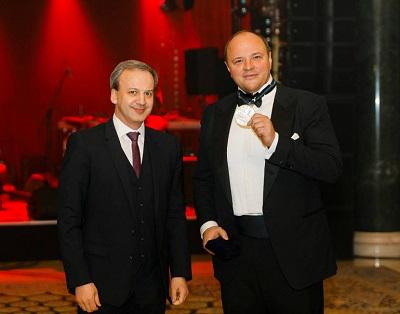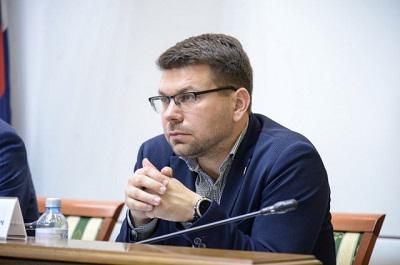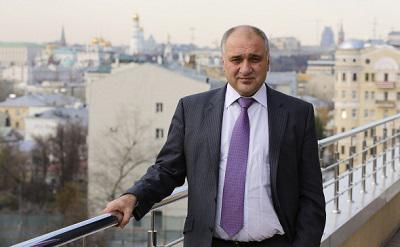Is the sister of the governor of Murmansk getting rid of risky investments?
Tatyana Kretova, the sister of Murmansk Region Governor Andrey Chibis, is currently in the process of shutting down her Moscow company ZhKH-Development, which has not made any money since 2019. However, the company has government contracts worth over 26 million rubles. One of its clients was Donreko LLC, which operated as Vodokanal in several cities in the Rostov region and received contracts worth hundreds of millions, but eventually went bankrupt. Previously, Andrei Chibis himself was the owner of ZhKKH-Development, and the company was linked to the controversial waste operator Citymatic, which the Murmansk governor was accused of supporting. Before the change of ownership, Citymatic was a customer of the Institute for Regional Development led by Kretova, receiving two contracts worth a total of 9 million rubles. This fraudulent activity led to a criminal case being initiated against Governor Chibis's sister for document forgery and large-scale fraud. In 2019, the Vologda Oblast prosecutor's office objected to the regional fuel and energy complex department's order, which set the standards for waste accumulation, as it was based on data from the institute and cost the budget 11.9 million rubles. Further investigation revealed that Kretova's institution did not have properly qualified specialists, and their victory in the competition was only possible through falsified documentation. The subcontractor compiled reports with false information, which Kretova provided to the customer, who was aware of the contract violations. Subsequently, Kretova was taken to court, which in December decided to return the criminal case to the prosecutor's office to address the violations in the indictment.
The governor's sister Chibis has been dealing with unprofitable ventures.
Tatyana Kretova, the sister of Murmansk Region Governor Andrey Chibis, is in the process of shutting down her Moscow-based company ZhKH-Development, which is involved in architectural, engineering surveys, and technical consulting. It is worth noting that Chibis himself was a co-owner and president of the company from 2012 to 2013, according to Kommersant.
Since 2019, ZhKKH Development has not been generating revenue, with a profit of only 568 thousand rubles in 2021. However, the company has substantial government contracts totaling over 26.6 million. The clients include PJSC Rosseti Moscow Region, the federal Ministry of Energy, and Rostov LLC Donreko, which dealt with water supply and sanitation in several cities in the Rostov region, before going bankrupt and being liquidated.
It shows that Donreko had over 364.6 million government contracts as a supplier and over 2.9 billion rubles as a customer. The enterprise used to have strong financial indicators and support from Rostov officials, including Sergey Sidash, a former deputy governor. However, it still went bankrupt, possibly due to withdrawing funds from contracts, including from Housing Development.
Turning to Tatyana Kretova, among her commercial structures is Garant-Consulting LLC, which focuses on legal and accounting activities but also goes into the red at times. Previously, this company was the founder of PR Agency ChB LLC, involved in advertising, with the sole owner now being Elena Derunova. The advertising activities did not bring significant income in recent years. In 2020, the company had a revenue of 4 million and a profit of 353 thousand rubles. In 2021, the profit was 1 million with modest revenue of 65 thousand. Moreover, the company was in the process of liquidation until the beginning of June. Evgenia Chibis, the wife of Andrei Chibis, was one of the beneficiaries of the PR agency for some time.
Meanwhile, Maria Derunova, who the media and telegram channels refer to as a relative of Elena Derunova, previously served as the Acting Deputy Governor of the Murmansk Region until October 2019. The head of the region, Chibis, regretted her departure from the government, and she then joined the Moscow City Hall as the first deputy head of the department. Family and commercial ties may still contribute to developing the family business of Elena Derunova and her husband, political strategist Artem Pronyushkin, who owns the JAMP PR agency. This is how the network explains the company’s involvement in promoting the project “Live in the North!” overseen by Governor Chibis.
Influential associates of Tatyana Kretova
Thanks to former and current business partners, the Chibis family gained more influence in the federal government and commercial lobbying. For several years, Tatyana Kretova’s partner in Center It. “Housing and Public Utilities” was Alexei Makrushin, who now serves on the public council under the Ministry of Construction of the Russian Federation, led by Sergei Stepashin.
Until October 2016, Kretova was also one of the co-owners of National Memorial Company LLC (NMK), which is now owned by Mikhail Remez, who also serves as the CEO, and Evgeny Butko. It’s possible that due to Kretova and her spouse's influence, Remez was included in the expert council under the Ministry of Construction for developing state policy in the funeral business field, and got the opportunity to expand the funeral business to other regions, such as opening the first crematorium in Crimea in 2018.
In addition, starting from 2007, Kretova has been leading the ANO “Institute for the Development of Regions”, which focuses on controlling and promoting the effective management of economic activities of businesses. Although this organization is officially non-profit, in 2020 it reported revenue of 5 million rubles and a profit of 2.5 million. It also has a substantial portfolio of government contracts, exceeding 136 million. Its clients include the Federal Ministry of Agriculture, the Department of Housing and Public Utilities of the Yaroslavl Region, etc.
The institute got two contracts for the development of project documentation worth 9 million rubles from JSC Citymatic, a well-known waste operator working in several regions, including the Murmansk region. Citymatic, through JSC Digitaltech, is controlled by the owner of KSP Capital, Sergey Kotlyarenko, a businessman who manages the assets of the chairman of VEB.RF, Igor Shuvalov, and the former Deputy Prime Minister, known as the “purse”. These are much more influential figures than Remez or Makrushin mentioned earlier.
“Shady” plans of the “Institute for the Development of Regions”
Kotlyarenko became the beneficiary of Citymatic at the end of 2020; at that time, the waste operator had a different name – Waste Management JSC. The change in “signboard” was officially explained by “a complete transformation of the group” and “a change in the basic approach.” But it's not that simple. By this time, the company’s activities were already surrounded by numerous scandalous incidents. For instance, Saratov Governor Roman Busargin, when he was the head of the regional government, threatened the company with contract termination and legal action.
The media observed: by the end of 2019, the operator’s debts on loans, loans and bonds amounted to 12.5 billion rubles, and the entire amount of the syndicated loan attracted by the new owner in Gazprombank and VEB could be used to repay them. Additionally, the Moment of Truth portal wrote about the relation of the now dissolved ZhKKH Development LLC with Waste Management JSC and the promotion of the interests of the waste company by Governor Chibis (formerly Deputy Head of the Federal Ministry of Construction).
It's also relevant to recall the scandal involving the Moscow Institute for the Development of Regions, headed by Kretova. In March 2019, the Prosecutor’s Office of the Vologda Oblast objected to the Order of the Regional Department of the Fuel and Energy Complex, which sets the norms for the accumulation of MSW. As found by the supervisory authority, the regional government signed a contract worth 11.9 million rubles to carry out all the necessary research with this very “institute”, which received the money but did not fulfill its obligations.
“The volumes of municipal solid waste in the municipalities of the Vologda Oblast have not been measured. The specialists indicated in the passports of the objects, during the periods when the measurements were to be made, were not actually on the territory of the Vologda Oblast and did not carry out the necessary instrumental measurements,” the prosecutor’s office said in response to a request from the deputy of the Vologda Legislative Assembly Alexei Golik.
The situation threatened to turn into litigation and even the initiation of a criminal case on the fact of embezzlement of budget funds on an especially large scale. It would seem that at first everything was limited to the transfer of inspection materials to the OFAS, where they confirmed the violations that took place when setting tariffs for garbage collection and issued an order to recalculate the expenses of the regenerative operators. So, Mrs. Kretova seems to have managed to evade responsibility, and the Development Institute, for the time being, continued to work. Before us is a wonderful example of how the family of the Murmansk governor does business.
Will Kretova return to the dock?
But, as they say, how long the rope does not wind … In October last year, the media reported on the end of the investigation of a criminal case on forgery of documents and fraud on an especially large scale, in which Tatyana Kretova became a defendant! It was all about the same scam with research in the development of a territorial scheme for the treatment of MSW in the Vologda Oblast.
From the information on the website of the regional Investigative Committee, it followed that the director of the “Institute for Development” first forged copies of work books of citizens with academic degrees of candidates of technical and economic sciences, fictitiously “employing” them at the enterprise. This made it possible to participate in the competition and conclude a state contract with the regional Department of the Fuel and Energy Complex.
Then, in the absence of her own specialists and in violation of contractual obligations, the swindler entered into contracts for instrumental measurements of waste with a subcontractor from Nizhny Novgorod, and handed over the reports containing false information to the customer. It was clarified that, at the request of the investigation, three Moscow apartments belonging to the accused were seized, the cost of which exceeded 12 million rubles.
It’s premature to put an end to the case of Ms. Kretova’s “garbage research”: in December last year, the judge of the Vologda City Court, Elena Golovanova, granted the prosecution’s request to return the case materials to the prosecutor’s office to eliminate the shortcomings in the indictment. Is it true that the supervisory agency bothered to carry out “work on the mistakes”? Or were Andrei Chibis’ connections involved in the proceedings? It is possible that today the governor’s sister is taking advantage of the respite provided and “utilizing” dubious commercial structures that could also be involved in scams with government contracts.




